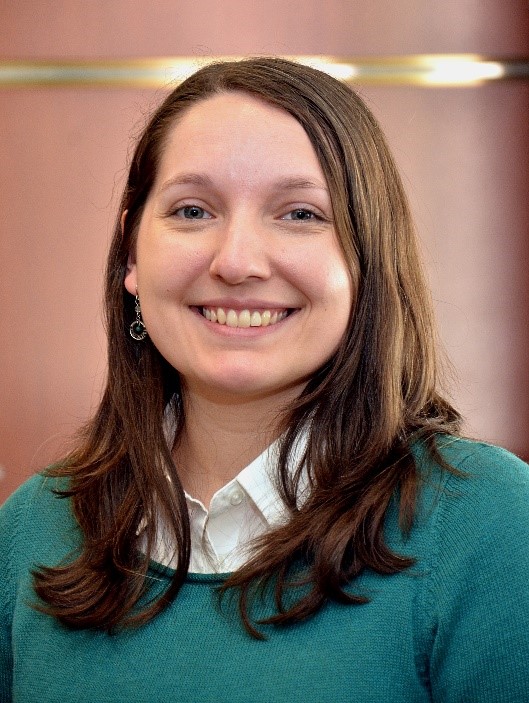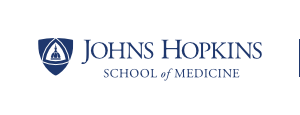JHSPH Alumni Profiles
Lily Raines, PhD
 Dr. Lily Raines completed her PhD at Johns Hopkins in the Biochemistry, Cellular and Molecular Biology program in the department of Biophysics and Biophysical Chemistry. Before starting at JHU, she received her Bachelor’s in Science from Eckerd College in Biochemistry. During her graduate work, Dr. Raines was a Science Outreach Intern at the American Society for Biochemistry and Molecular Biology (ASBMB) as part of the Biomedical Careers Initiative program at Hopkins. She also served as the Course Director for the Effective Science Communication course in the School of Medicine. After completing her work at Hopkins, Dr. Raines started at the American Chemical Society as a Global Projects Manager of International Activities. She currently works at the American Chemical Society as the Manager of the Office of Science Outreach.
Dr. Lily Raines completed her PhD at Johns Hopkins in the Biochemistry, Cellular and Molecular Biology program in the department of Biophysics and Biophysical Chemistry. Before starting at JHU, she received her Bachelor’s in Science from Eckerd College in Biochemistry. During her graduate work, Dr. Raines was a Science Outreach Intern at the American Society for Biochemistry and Molecular Biology (ASBMB) as part of the Biomedical Careers Initiative program at Hopkins. She also served as the Course Director for the Effective Science Communication course in the School of Medicine. After completing her work at Hopkins, Dr. Raines started at the American Chemical Society as a Global Projects Manager of International Activities. She currently works at the American Chemical Society as the Manager of the Office of Science Outreach.
I manage a small team in charge of domestic and international science outreach programs. Our team works on two large principally domestic outreach campaigns (National Chemistry Week, Chemists Celebrate Earth Week); one international outreach program and an associated train-the-trainer workshop (the Chemistry Festival); a program helping scientists go into schools with hands-on activities (Kids and Chemistry); and the Chemistry Olympiad.
Pretty smooth. I knew what I signed up for in a general sense after completing my internship at the ASBMB. I looked forward to the strategic aspect of designing new and expanding existing programs. The international aspect was something I didn’t plan for but now I love the lens it gives me for all our programs.
Time management is one of the most useful things gained from my training at Hopkins used in my daily work, as we have various programs and competing priorities with limited budgets. Similarly, the ability to look at program data, analyze, and decide how that informs your next steps come naturally after working in a lab. The content knowledge is helpful as I help bridge the gap between our scientist volunteers and our staff. My experience writing grants is useful as I defend the budgets for our programs.
When I started graduate school, I was certain that I was going to be a professor at a primarily undergraduate institution. Around year 3 or 4 I did some reflecting about what the key elements were of my ideal future career. It is important to me to help science as an enterprise, and through our programs and training of our wonderful volunteers I feel I can have an exponential impact.
Through LinkedIn. I knew I wanted to work at a scientific professional society, so I looked for positions and found my first job listed as “Global Outreach Coordinator.” It’s been great working at ACS ever since.
The best thing to do is volunteer in outreach, or whatever field you’re interested in pursuing, and try to assume a leadership role. You need to “walk the walk” and make sure your resume has something that proves your passionate and dedicated to a given career path.
The single biggest thing was that it showed me a career in science outreach was possible. I had assumed it would just be a hobby alongside my “real” career, and I am glad I was able to learn otherwise.
In the more near future, I’d like to continue to progress through management at the American Chemical Society. I would eventually like to become an executive director of a science focused non-profit, but I’ll confess I’m not sure how many years it takes to reach that level.
Starting salaries seem to be around $60,000/year in Washington, D.C.
As I am no longer tethered to a lab bench I am able to take advantage of flexible work policies. I am able to work from home on Fridays, which is a nice break from my commute to D.C., and I have many colleagues who have a compressed work week schedule. I have a rare position that includes a lot of international travel – I think I won the lottery here!
Look for positions at professional societies, charitable foundations, and even university communications offices.
This career path is not limited to U.S. citizens, although I imagine most positions would be based in major cities such as Washington, D.C.
Volunteer! There are plenty of great groups around Hopkins who are doing important outreach in the community. Even if you don’t want to pursue outreach full time, volunteering is a great way to give back to your community and can be a nice change of pace from bench work.
